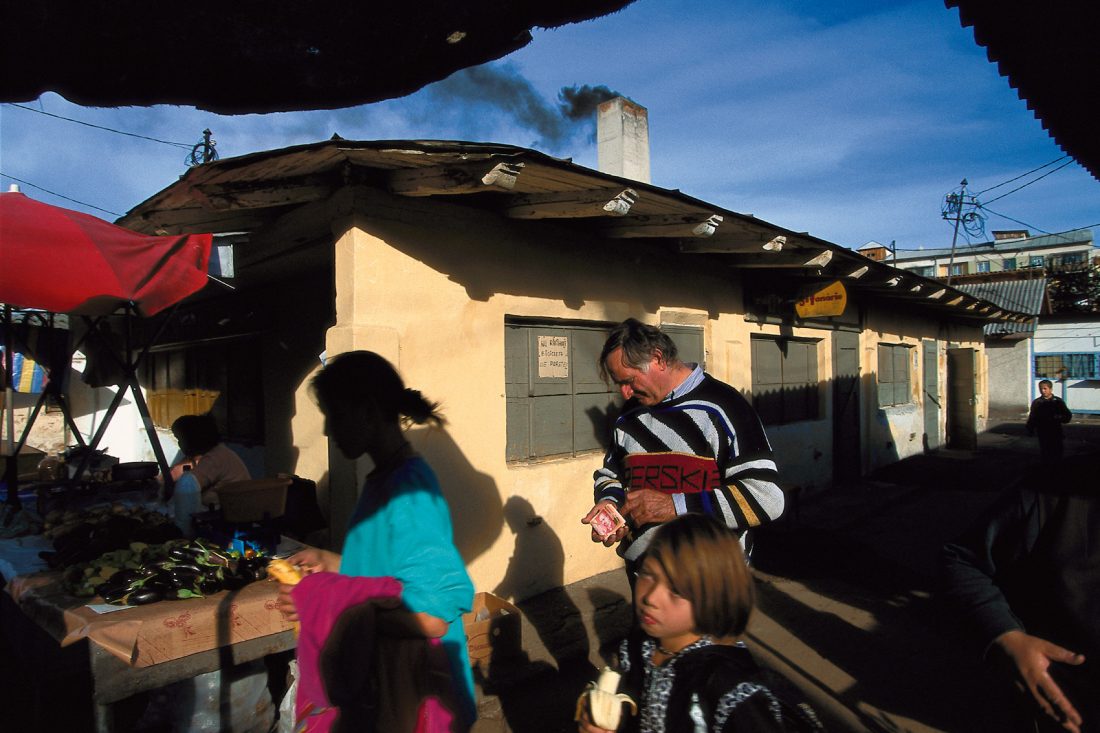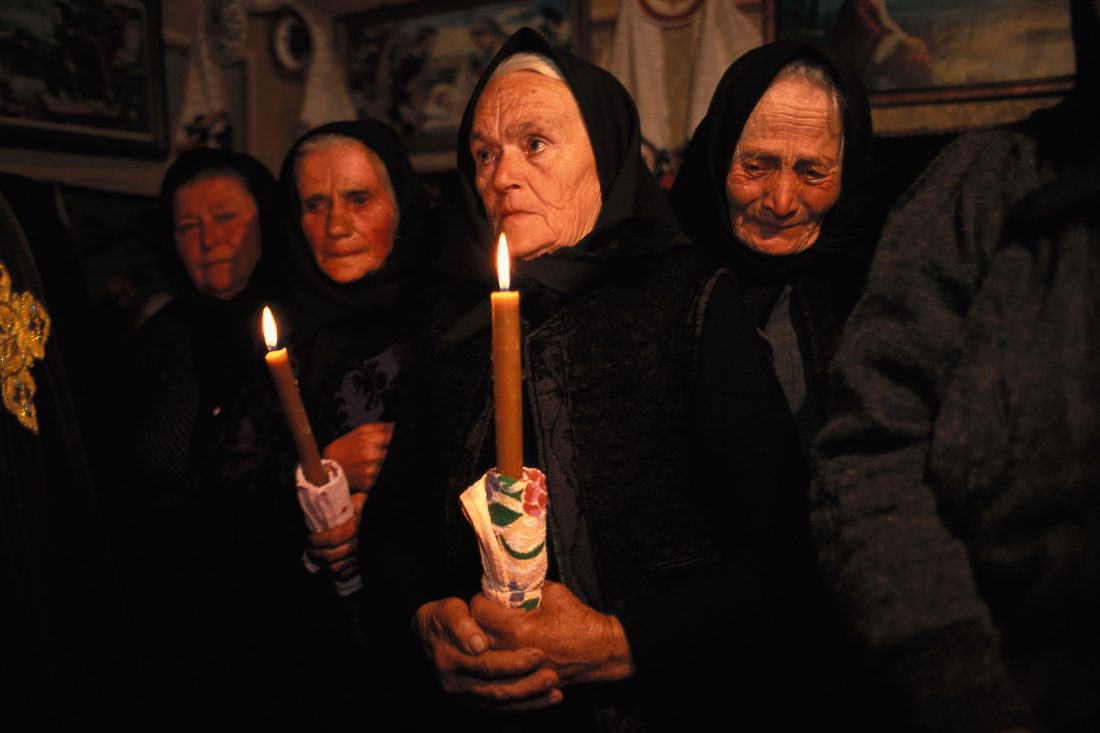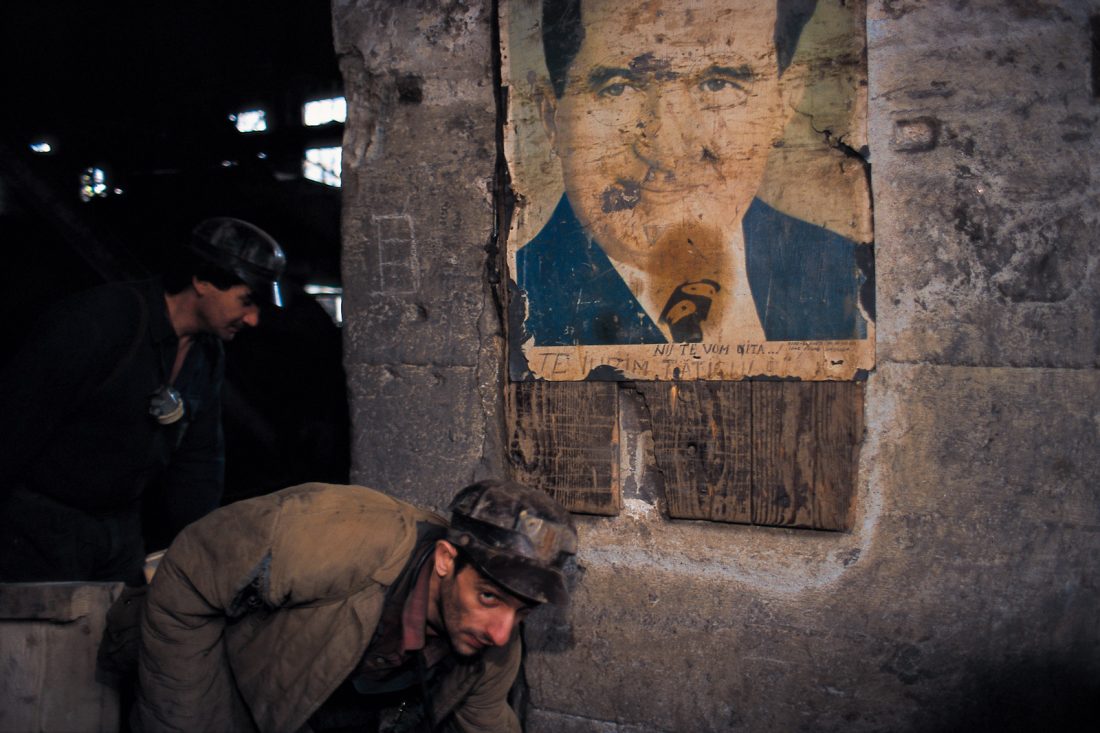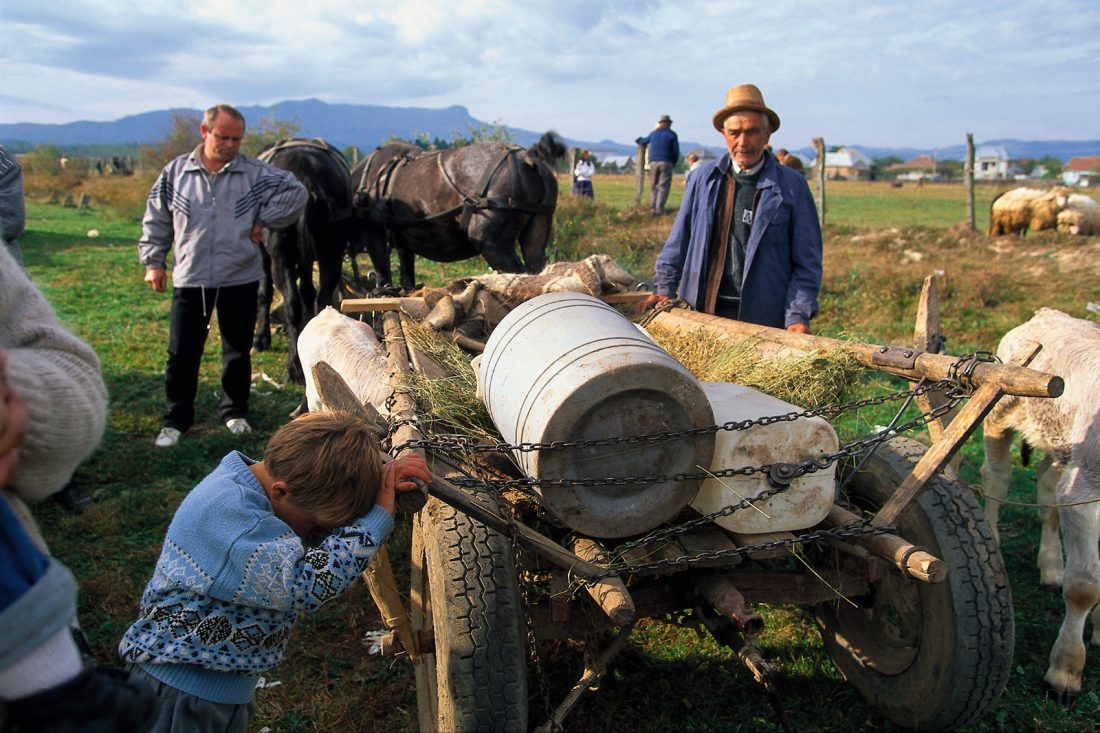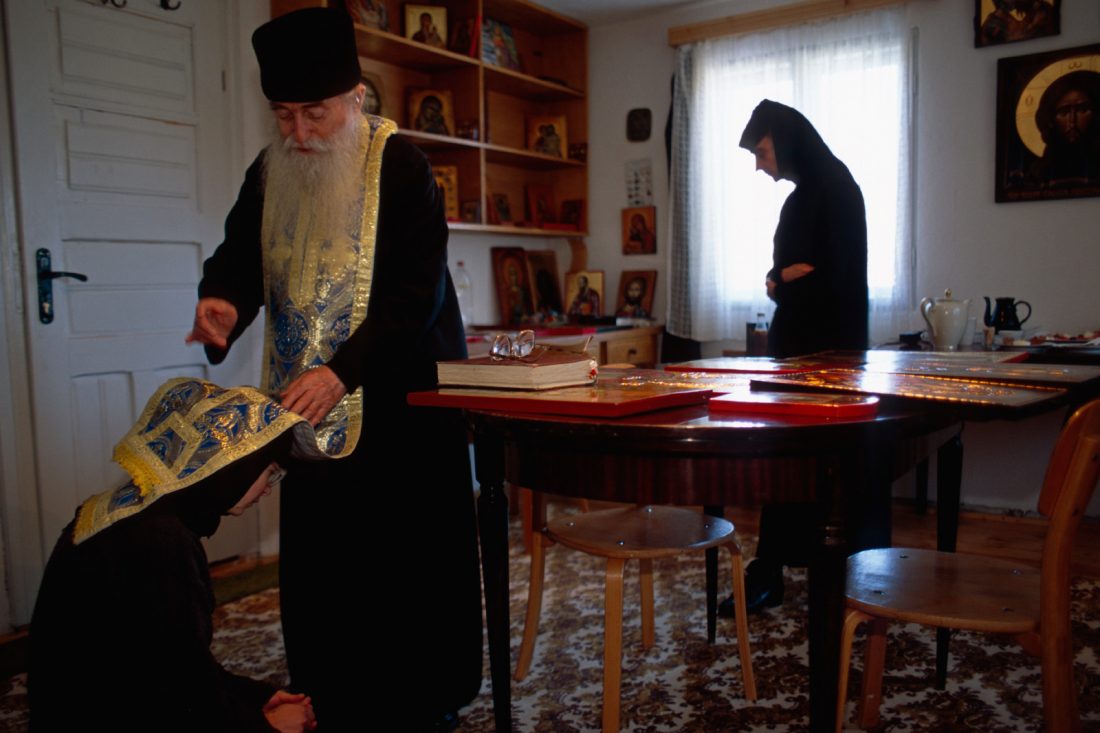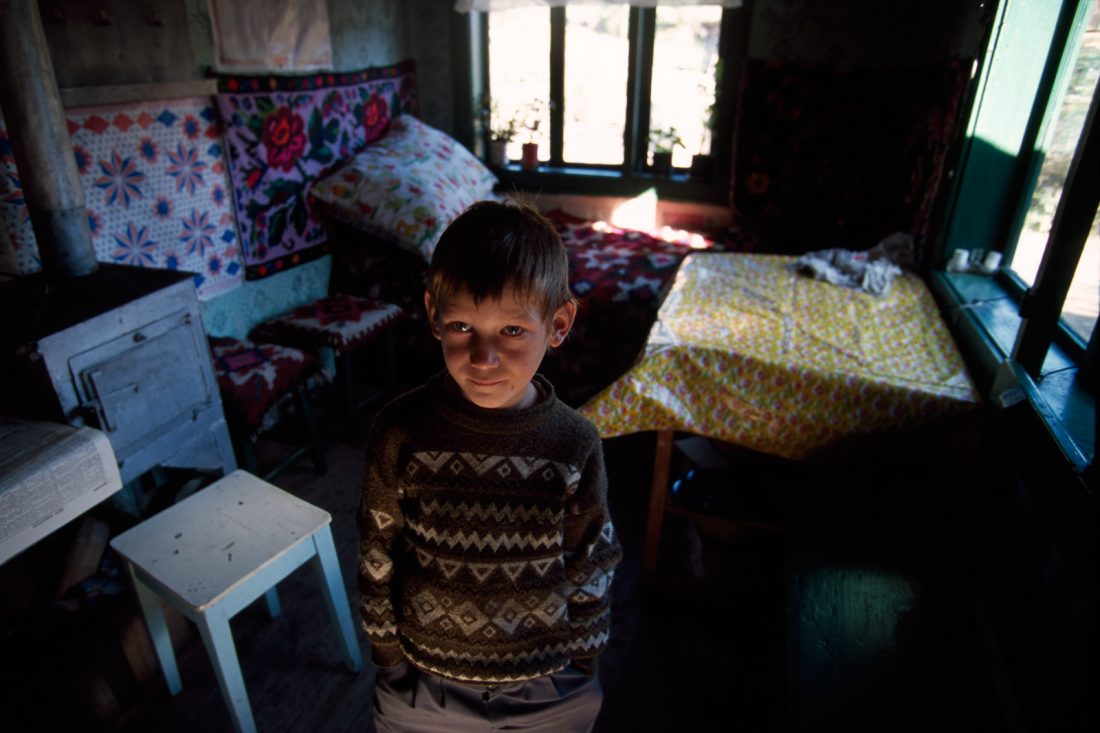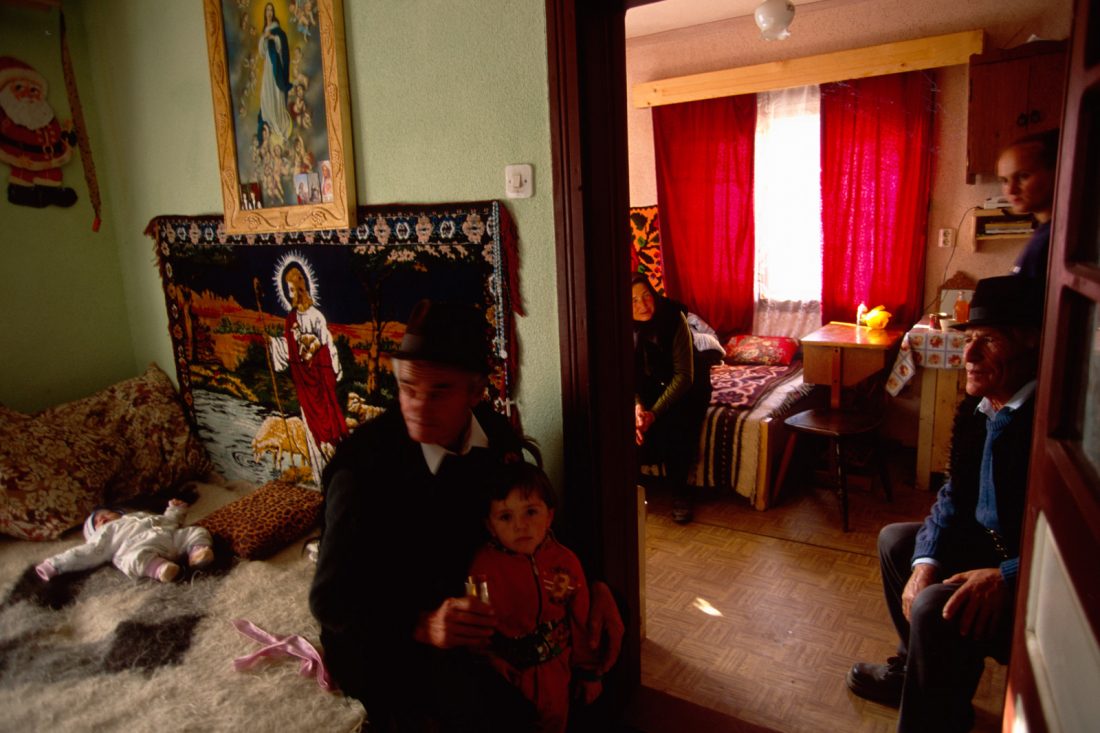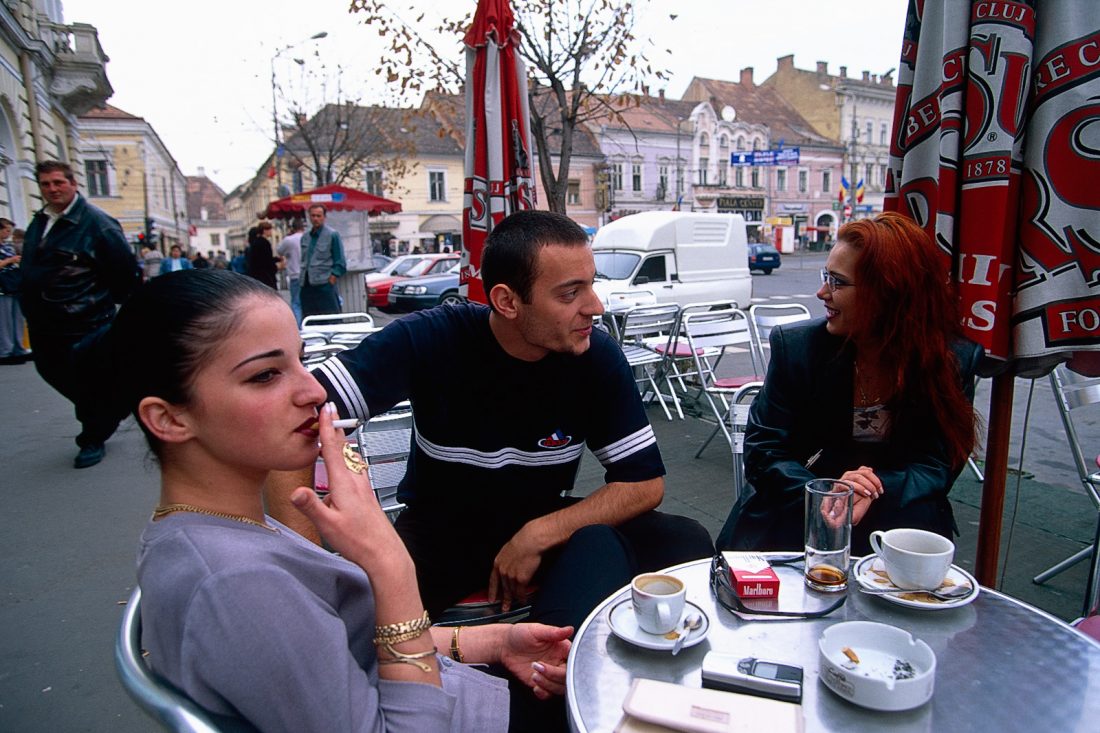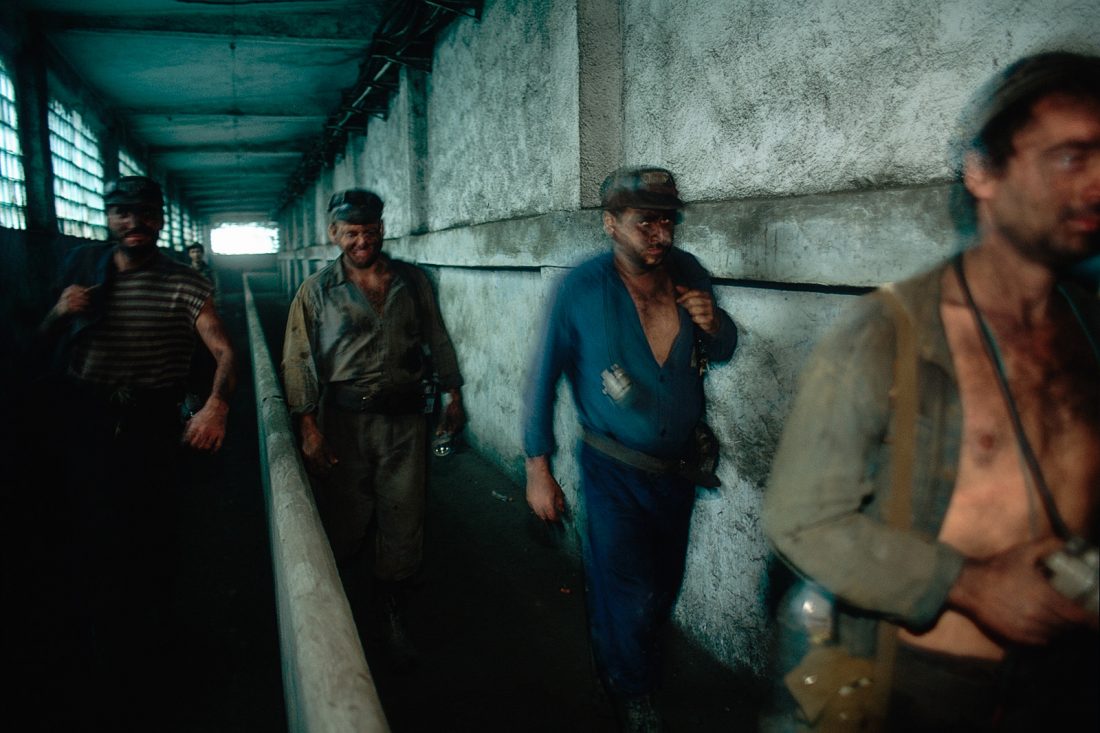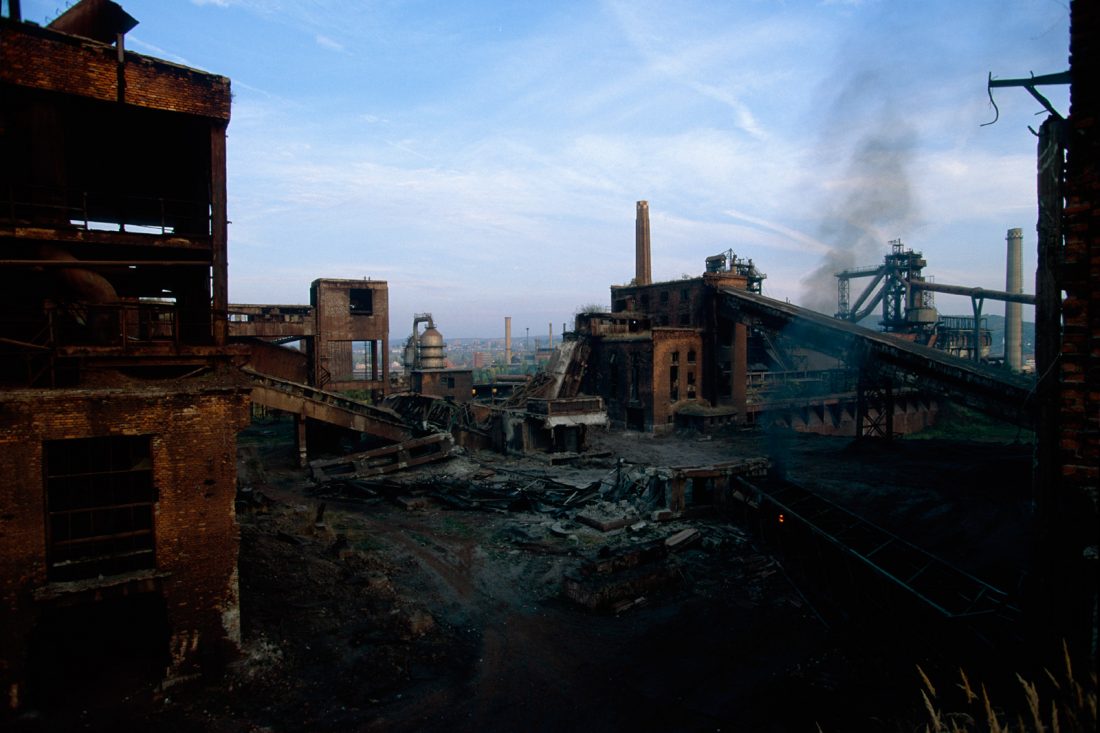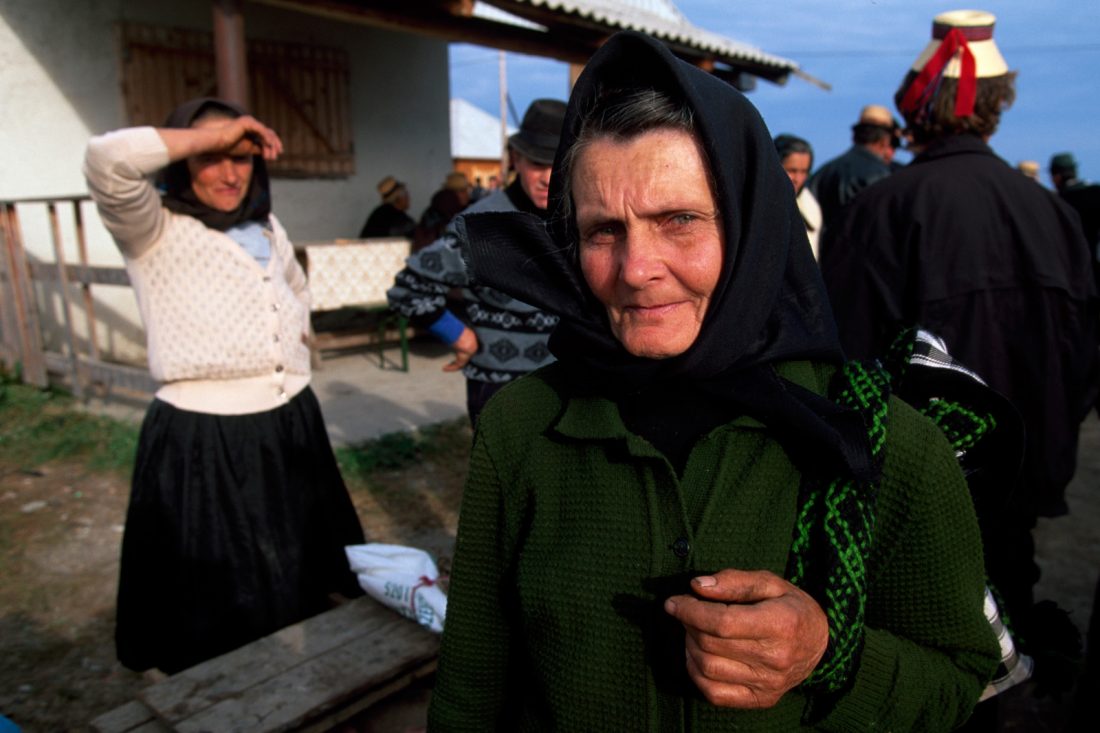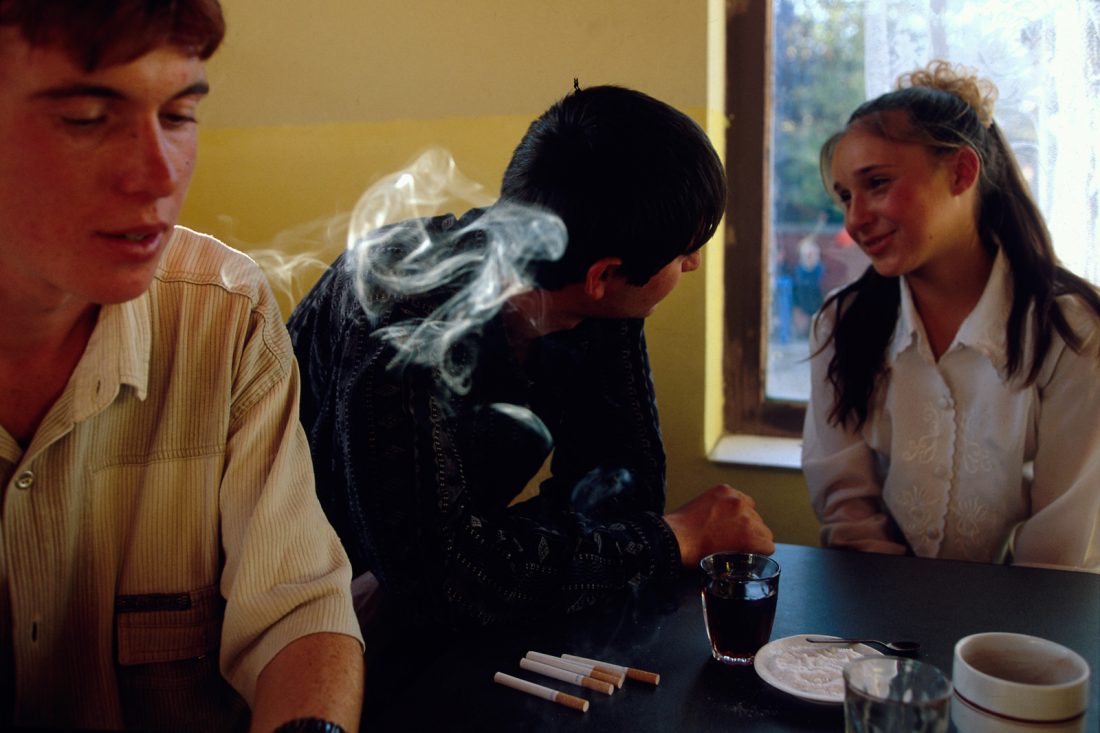Romania
Translated from the Spanish by Andrew Hurley
I was tired when I arrived on the morning train, so I went right to the small pension where I was to stay, a simple house with flowers on the balcony in the little town of Botiza, near the Ukrainian border. I had just closed my eyes when the owner of the hotel knocked at my door crying, “There’s someone to see you, someone to see you, Mr. Corral!” He sounded anguished.
“That’s not possible,” I told him; “I don’t know anybody here.”
“Yes, yes, they’ve asked for you.”
When I went downstairs I found a little man waiting for me: eighty years old or so, hunchbacked, with tears in his eyes. He took off his hat and very shyly said to me, “My wife, the light of my days, my friend, my companion, my Ioana, has died. I was told you’d arrived and I came to ask if you’d come to be with us. Come to my house, please.”
It was a little wooden house with hand-hewn walls and rafters, its walls covered with tapestries and icons — a country person’s house. They invited me to go into the room where Ioana’s body had been laid. Only the women were standing around the casket. They were not crying, they were singing. The singing was pitiful, heartwrenching —it took grief and elevated it. The women took turns singing. “Do you remember Ioana when we’d walk through the hills, watching the sheep as they grazed?” one would wail. And another would answer: “And remember when we’d bake the bread and talk and knit beside the chimney?” Each old friend had a memory, an improvised strophe, and together, one by one, they reconstructed the life of this simple woman.
How sweet that farewell; what sensible, true pain! It is these encounters that make one feel part of the human family.
In Romania I felt at home. It is a Latin country. Romanian, the language, shares its roots with Spanish, my own tongue; Romania the country is poor, like my own. Within a few weeks I could understand enough to get around. I had gone there to do a report for a wonderful Spanish magazine called Planeta Humano, “Human Planet.” Unlike other countries within the Soviet orbit, in Romania Communism met a violent end: the monstrous Ceausescu was killed after a massive rebellion.
Everywhere one sees traces of Ceausescu’s grandiose regime. He was convinced that he was building a new nation, a society in which everyone would be equal and there’d be justice for all. Within that context, nothing that had existed prior to his coming had any value or meaning. One of the government’s most ambitious programs involved taking huge earth-moving machines and razing all the country’s little medieval villages and building modern industrial cities. He’d had enough time to destroy several little wooden villages, where now all that’s left standing are abandoned multifamily apartment blocks. The towns lost their vitality, their spontaneity.
Much the same thing happened in Hunedoara. The government decided to build the largest iron and steel plant in Europe, a facility that would bring Romania into the modern age. What was built, though, was a huge white elephant, with a city of thirty thousand people around it, for the workers. When Ceausescu fell, hordes invaded the plant and sacked it. Hunedoara is now a smoking ruin, a monument to the arrogance of Industrial Man.
I cannot understand how anyone can dream of creating governments in the Soviet fashion, how anyone can believe in Stalinist socialisms after the disasters those regimes have brought down upon the world. What characterized those governments was three things: the belief that they were based on a “true” vision of the world, the belief that a huge social engineering project was actually possible, and the lack of any agency of outside, independent control, the lack of a counterweight of any kind.
I am convinced that any dictatorship, any government that exercises power without limits (self-imposed or imposed from without), is a black government, indeed. Dictatorships, whether of the Right or the Left (categories used to discredit those who don’t think the same way you do), are just that — dictatorships. It matters not whether they’re inspired by notions of Christian goodness or the dream of constructing an egalitarian society opposed to capitalist imperialism. The substance, the basis of a modern society is the recognition of the rights of every person, the rights of the other, the person who doesn’t think the same way you do. And there is also the necessity that power — any sort of power — have limits, counterweights.
Romania is a country that suffered for decades under the black hand of a messianic government whose mission was to re-found the nation. A brief look back at history should remind us that in the name of utopias, governments have created poverty, war, starvation, or, less dramatically, inefficiency, caprice, cults of personality, a lame kind of populism that impoverishes ideas and make us think that it’s better to divide ourselves into factions than to find identity and belonging in the great human family.
Romania is quickly shedding its prejudices, its phobias now. Its cities are modern, and fully integrated into Europe. The towns in the interior, on the other hand, are living treasures of a more agricultural time — closer to the earth, to tradition, to the community, to a style of life that is almost extinct in Europe. In these towns, neighbors still sing fervent songs to the dead and celebrate the heartfelt value of bread and soil.

